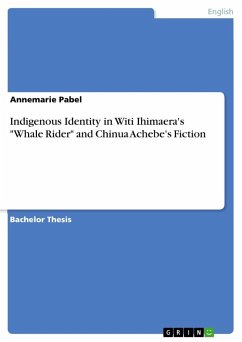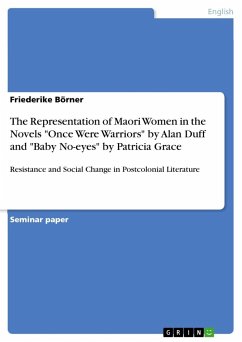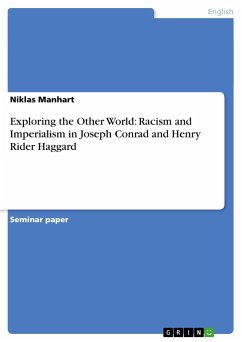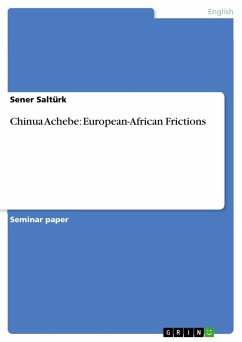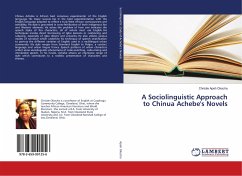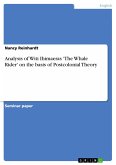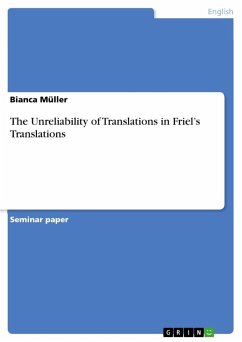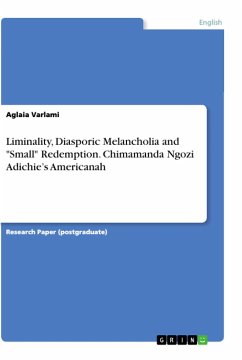Bachelor Thesis from the year 2011 in the subject English Language and Literature Studies - Literature, grade: 1,0, University of Dusseldorf "Heinrich Heine", language: English, abstract: In both Chinua Achebe's Things Fall Apart and Witi Ihimaera's The Whale Rider indigenous identity is a central topic. Yet, it is challenged by the advent of colonization or, in the latter case, by the fusion of ancient tradition and modernism. As such, the aim of this paper is to analyse the literary representation of indigeneity in these novels using Stuart Hall's dual definition in order to show how indigenous identity develops at the backdrop of colonization and what this means for the concept of identity in a postcolonial context. [...] Subsequently, attention will be drawn to the ways in which the individual is representative of indigenous identity and how this relates to the dynamics between community and individual. This part will contrast the idea of a stable self with a transformative one and thus also establish a connection to the succeeding analysis of diaspora identities in Things Fall Apart, which are based on constant progress. [...] The results will then provide the basis for a discussion of relocation and hybridity to subsequently contextualize them in the concept of diaspora identities and, more generally, postcolonialism. Although the focus of the analysis is on Things Fall Apart the background of the last chapter will be used as an occasion for a brief discussion of the second part of his trilogy, No Longer at Ease. After this, a similarly structured analysis of Witi Ihimaera's The Whale Rider will be pursued. Firstly, the literary representation of features of oral tradition and orality in general will be examined before attention is directed towards myth as a major constituent of Maori identity and its use in the novel.[...]To embed the representation of identity in the broader concept of postcolonialism, the novel will then be discussed in terms of rewriting. Nevertheless, the aim of this chapter will not be a comparative approach of the ancient pretext as a basis for the modern novel. How have Western influences and elements of globalization been interwoven in the narration? And how do these contribute to rewriting? The result will be drawn on to answer these questions of the significance of rewriting and relocating for the concept of cultural identity.[...] The purpose of this comparison is to clarify the major differences and similarities which is a prerequisite of the contextualization of the concept of identity in postcolonialism as will be done in the conclusion.
Hinweis: Dieser Artikel kann nur an eine deutsche Lieferadresse ausgeliefert werden.
Hinweis: Dieser Artikel kann nur an eine deutsche Lieferadresse ausgeliefert werden.

